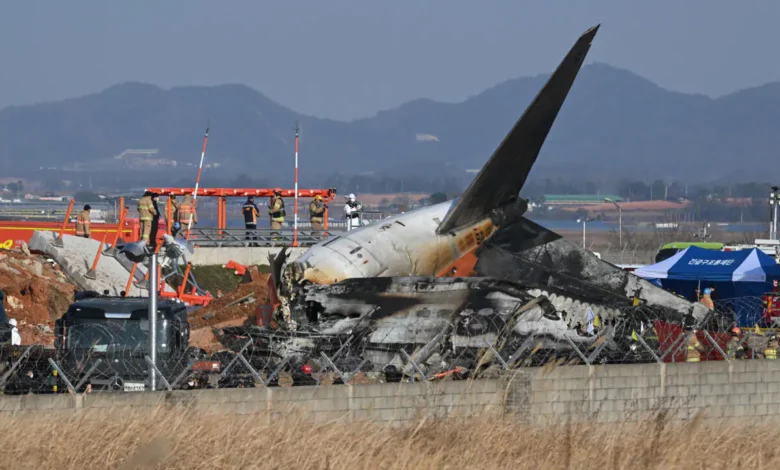
Following the release of some shocking details by the transport ministry, the tragic disaster of Jeju Air’s Boeing 737-800 jet in South Korea has come under high scrutiny. The black boxes carrying crucial flight data and cockpit voice recordings stopped recording some four minutes before the aircraft made its catastrophic landing on December 29.
Flight 7C2216 was flying from Thailand to Muan International Airport, but it belly-landed, hit a concrete barrier, and then exploded, killing 179 out of the 181 passengers and crew. This is considered the worst aviation disaster ever to happen in South Korean history.
In a statement on Saturday, the transport ministry confirmed neither the cockpit voice recorder nor the flight data recorder captured key data in the final moments before the collision with the localiser—a device designed to assist landings that was implicated in exacerbating the severity of the crash.
Initial analyses of the voice recorder were conducted in South Korea, but upon finding missing data, it was forwarded to a U.S. National Transportation Safety Board laboratory for further examination. Unfortunately, the loss of data from these critical devices has left investigators trying to piece together the final moments of the flight.
“Plans are underway to investigate the cause of the loss of data as part of the ongoing accident inquiry,” the ministry said. Sim Jai-dong, a former transport ministry accident investigator, said he was surprised to hear that some of the data was missing and speculated there could have been a total electric power failure, including backup systems—a very rare occurrence in aviation accidents.
While the black boxes are crucial to the investigation, investigators have pledged to find what caused the crash. A bird strike, bad landing gear, and even the runway barrier are considered factors. The pilot did declare a bird strike and intended a go-around before making an acute turn coming into the runway at an angle not aligned with it and crashing while landing gear up.
Lead investigator Lee Seung-yeol told a news conference that “feathers were found” in one of the engines salvaged, though he added that the bird strike would not necessarily bring down an aircraft engine. Other investigation activities involve raids at Muan airport, a regional aviation office in the southwestern city, and Jeju Air headquarters in Seoul, where the head of Jeju Air was barred from leaving the country.
After the tragedy, the transport minister Park Sang-woo offered his resignation earlier this week as he felt very responsible for what happened. The investigations are still going on, and most of the effort is focused on finding all the circumstances around this terrible incident.



